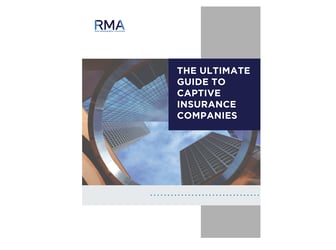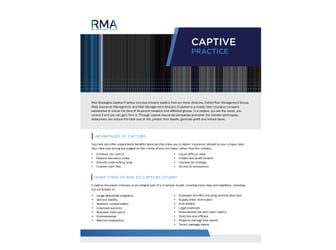
When it comes to providing healthcare benefits for employees, many business owners are considering self-funded medical insurance as a cost-effective and flexible option. However, before adopting this approach, there are several crucial considerations to keep in mind.
Evaluating the Financial Risk
One of the primary considerations for implementing self-funded medical insurance is evaluating the financial risk. Unlike traditional fully insured plans, where the insurance carrier assumes the financial risk, self-funded plans require the business owner to bear the cost of employee healthcare claims. It is essential to assess the financial stability and capacity of the business to handle unexpected spikes in medical expenses. Utilizing financial forecasting tools and consulting with professionals can help in making informed decisions.
Analyzing the Workforce and Health Needs
An in-depth analysis of the workforce and health needs is crucial in designing a self-funded medical insurance plan that meets the specific requirements of the employees. Gathering data on employee demographics, past healthcare utilization patterns, and prevalent health conditions can provide insights into the types of coverage and benefits that will best serve the workforce. This analysis can help identify trends, prioritize preventive care and wellness initiatives, and tailor the plan accordingly.
Selecting a Third-Party Administrator (TPA)
To effectively manage a self-funded medical insurance plan, it is essential to partner with a reputable and experienced third-party administrator (TPA). The TPA will handle various administrative tasks, including claims processing, network management, and utilization review. When selecting a TPA, consider factors such as their track record, expertise in self-funded plans, customer support, and transparency in reporting. Engaging in thorough research and seeking recommendations from industry peers can assist in choosing the right TPA.
By carefully considering these factors, business owners can make informed decisions regarding the implementation of a self-funded medical insurance plan. This approach can provide greater control over healthcare costs, customization of benefits, and improved flexibility for adapting to the changing needs of the workforce.
Designing the Benefits Package
As a business owner, offering self-funded medical insurance can be a strategic choice that provides flexibility and cost savings. When designing your benefits package, it's essential to consider a few key factors that will contribute to its success.
Choosing the Right Coverage Options
One of the first steps in designing your benefits package is selecting the coverage options that will best meet the needs of your employees. It's important to consider factors such as the size of your workforce, demographics, and the health needs of your employees. Options to consider may include medical, dental, vision, and prescription drug coverage, among others. Additionally, you may want to think about offering flexible spending accounts or health savings accounts to provide employees with additional control over their healthcare expenses.
Incorporating Employee Communication and Engagement
Once you've chosen the coverage options for your self-funded medical insurance, it's crucial to effectively communicate these benefits to your employees. This can be done through various channels, such as employee portals, email communications, or in-person meetings. Providing educational materials that explain the benefits and how to maximize their value can also be helpful. Additionally, engaging employees in the decision-making process, such as through employee surveys or feedback sessions, can foster a sense of ownership and satisfaction with the benefits package.
Explore
- Solutions
- Captive Insurance
- Captive Insurance Overview
- What is Captive Insurance?
- Definition of Captive Insurance
- Types of Captive Insurance
- Typical Structures of a Captive Insurance Program
- Why Form a Captive Insurance Company?
- Captive Insurance Utilization and Value
- Evaluating a Captive Insurance Program
- How to Setup a Captive Insurance Company
- Operating a Captive Insurance Company
- Captive Insurance Operating Costs
- Retaining Risk vs. Financing Risk
- Risk Distribution Through Captive Insurance
- Taxation of a Captive Insurance Company
- Captive Insurance Domiciles
- News and Insights
- About Us
Practice Leader(s)

Captive Practice Leader, Managing Director

Captive Practice Leader, Managing Director
Max Jong is the Captive Practice Leader and Managing Director at Risk Management Advisors, an alternative risk and captive management firm. Max began his career at Northwestern Mutual in 1994 after graduating from UCLA. Over 12 years, he built a successful financial services practice while heading up an office overseeing 50 professionals in Los Angeles and Irvine, California. The office was perennially one of the top producing organizations in the Northwestern Mutual system.
Max joined his partners at Risk Management Advisors in 2007 as he began to work with more sophisticated mid-market business owners. RMA specializes in the design, formation, and management of captive insurance companies. There’s also an emphasis on self-funded group benefits as well as other creative alternative risk management strategies. The firm assists business owners in better managing their risks without jeopardizing their balance sheets. In 2019, he headed up a merger with Risk Strategies, a Top 10 private national specialty insurance brokerage and consulting firm. Since then, he was appointed as the Captive Practice Leader to oversee the growth and development of the organization.
For five years, Max served as an Independent Director for Fiat Lux Risk and Insurance Company, one of the largest and most sophisticated captive insurance companies. Fiat Lux was established by the University of California Regents to better manage the broad risks of the University of California system.
Max has also been a lifelong supporter of Big Brothers Big Sisters of Greater Los Angeles. He initially volunteered to be a mentor in 1995 and is currently mentoring his second "Little." Max was asked to join the Board of Directors in 2000 and eventually served as their Board Chair. After 20+ years as an active board member, he continues to support the organization by serving as a Trustee.
He is married to Alice, and they’re raising two young children, Hunter and Hayden. Max and Alice are happily married despite her irreparable mistake of going to USC. He loves to travel, golf, and is a hopeful Lakers fan.
Resources







